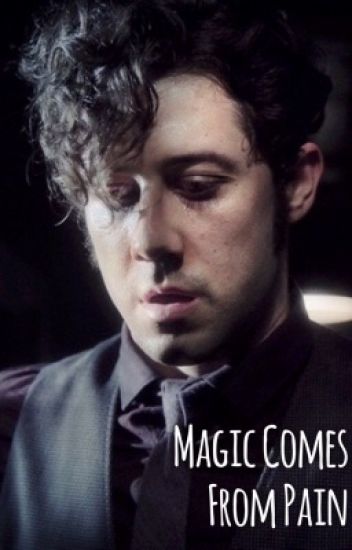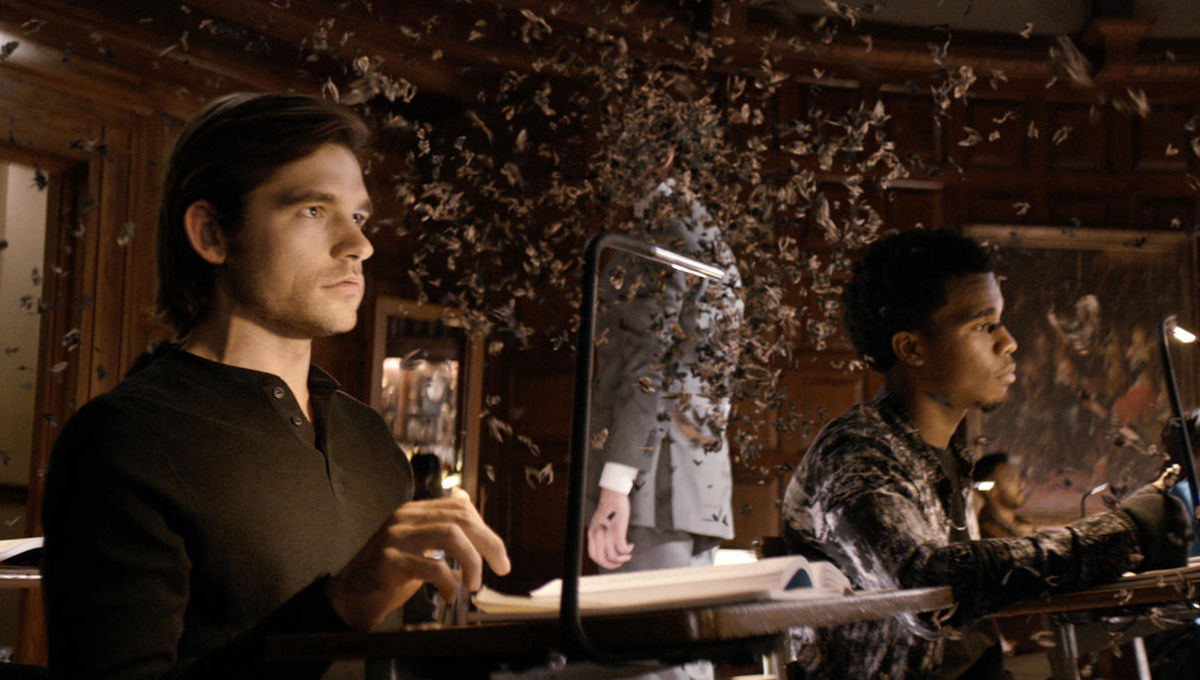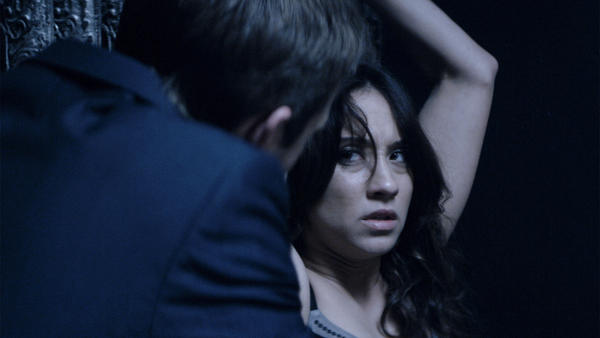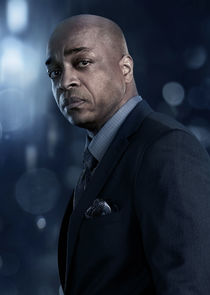Content Cathedral:
Symbiosis for Writers
A place for writers to help and encourage each other.
Thursday, October 27, 2022
Monday, July 6, 2020
Story Wonk: The Magicians S1E3
The Magicians S1E3: Consequences of Advanced Spellcasting
First Aired 2/1/16
Directed by
Scott Smith
Writing Credits
Created for TV by
Sera Gamble
John McNamara
Written for TV by
Henry Alonso Myers
Story Editor
David Reed
Based on The Magicians by
Lev Grossman
Narrative Drive:
This episode is all about the stakes. It drives home the message that the world of magic is dangerous. Just having the talent for magic can kill you … or even worse. In some ways you begin to wonder if learning magic is even worth it. Just casting a spell can corrupt a person into a monster, overpower a person into a monster, kill a person accidentally, or just change you into someone else. This isn’t a Harry Potter version of magic. With each revelation we are left to wonder which of these many characters will end up as monsters or dead or changed. The suspense starts subtly but it will last throughout the entire series.
This episode provides foreshadowing for a number of upcoming episodes. We learn what a Niffin is. Margo’s enigmatic personality begins to come more in focus. We see Penny struggle with hearing too much of what is in other people’s minds. We learn that Quentin knows all the words to some Taylor Swift songs.
Writer Take Away:
- Stakes: You just can’t have tension or narrative drive without stakes. For the stakes to feel real, they must be shown. Thus Charlie foreshadows his sister’s fate.
- Conflict: To provide grinding tension throughout the story provide two groups whose approach to the issue at hand is equally valid. The reader will feel obligated to side with one or the other side. However, the two sides provide a push-pull sensation as the advantages of each side come clear. No one need “win” this conflict. The point isn’t who is right, it is that the two sides can’t agree.
- Series: Not the type of series that results in a number of seasons or novels in the same setting but the plot structure series. This is the type of structure J. K. Rowling uses to create her stories. She has several subplots going throughout each novel and she keeps track of which ones appear in each chapter. The result is that it keeps the reader asking what will happen to a number of characters. In this episode we see the series about Niffins, Emily Mainstream, and Travelers. When these issues come up again it creates excitement for the reader. For a comprehensive course on series see Stuart Horwitz’s three books on the subject.
Character Arcs:
This episode provides a lot of the foundation for the rest of the season. It exemplifies each of the characters strong points and their flaws.
Quentin: Quentin was the hardest for me to figure out. Initially his flaw was his unwillingness to grow up and take adult responsibility. It was also his inability to fit in with society. He didn’t grow out of those flaws as much as coming to Brakebills negated them.
So now what is the flaw that he needs to overcome? In this episode he runs into Julia with the hedge witches. He admits he didn’t tell anyone at Brakebills about her nor will he. He tells her it is revenge for the way she treated him. She did seem to tease him sexually and to pester him about taking on adult attitudes. So perhaps Quentin does have a vengeful streak. But it also seems that Quentin is almost afraid that Julia will somehow work her way into Brakebills. Since coming to Brakebills himself he has been accepted and made friends. Is he worried that if Julia comes to Brakebills his friends will be so struck by her they will abandon him? Or perhaps he just enjoys
Quentin’s flaw, then is selfishness. He wants magic for himself. He needs to feel special, or more special than Julia.
Julia: Still acting as the foil for Quentin, Julia’s trajectory is the opposite of his. Where he is making friends, she is ignoring her friends. Where Quentin has a budding romance with Alice, Julia alienates her lover. Julia is sinking into the pit of obsession. No wonder she uses addiction as her excuse with her boyfriend. You do have to admire her determination though. She has pursued magic at all cost, but her strength of will has slid over a cliff into obsession.
Alice:
"Use magic in anger, and you will harm yourself much more quickly than you will harm your adversary. There are certain spells... if you lose control of them, they will change you. Consume you. Transform you into something not human. a Niffin, a spirit of raw, uncontrolled magical energy.”—Henry Fogg
Alice also shows us that she has a trust issue. Despite Margo’s best efforts Alice will not trust her or become friends with her.
Eliot:
“Hedge witches. Amateurs. Magical D-leaguers. Sad and desperate people. Once one of 'em offered to blow me for a spell. It was barely worth it.”—Eliot Waugh
So far Eliot has seemed the most organized and mature of the students. Eliot finally provides us with a believable character flaw. He is an Ivy League Snob. He also gives us a hint of something else. He is in search of the missing book because without it there will be an investigation of the cottage party culture. Eliot seems very fearful of the end of the Physical Kids Parties. Why? Is he afraid of going back to being a regular student rather than the host of the most incredible parties on campus. Is that what props up his ego?
Margo: This is her second attempt at befriending Alice and she has failed again. Her strength may be gossip. Her weakness is that gossip doesn’t provide opportunity for deep friendship. She may be smart, beautiful, clever but she is not trust-worthy to Alice. She is able to get men’s attention but she can’t quite make a female friend.
Penny: Fogg forces Penny to say he needs help with learning to control traveling. Penny is unwilling to accept help. That might be quite a flaw in this environment. The flip side, is that he is self sufficient. When he travels to Asia, he isn’t waiting to be rescued, he is finding a way back home. That is a pretty big plus for a magician.
Kade: She is resourceful. She uses battle magic to get into the Physical Kids Cottage. Her flaw is her betrayal of the Physical Kids. She stole a book from the cottage. Somehow hedge witches are controlling her and forcing her to steal for them.
Fogg: He seems to be concerned for all of his students. He isn’t necessarily able to keep them safe as they are being picked off in each episode.
Writer Take Away:
- Strengths and Flaws: This episode painted each character with a strength and a corresponding flaw. The flaw will be overcome by lessons learned and growth as the story progresses. What are your characters strengths? If you take that strength too far, what does it turn into? Think about Julia. Determination and intelligence are great strengths but taken too far they become obsession. For Quentin he loves magic and has a natural talent for it. But now he is hoarding it away from Julia. How can you show your character’s strengths and flaws? How can different characters bring out the best and worst in your characters?
- Give everyone a part to play. The books are much more centered around Quentin. The TV series allows for more points of view and so the support characters are getting richer development. That fills the series with even more fascinating plot lines and characters to root for.
Theme
”Being a magician has always been, in part, about accruing power. Power over yourself, the elements. Power over the future, the very world that exists around you But power, as you all know, does not come cheaply. There are reasons we teach this curriculum precisely the way that we do. Skipping around, focusing on all the wrong things, lack of guidance... These are all extremely dangerous. There are certain energies, certain spells, which are far too powerful for one magician alone. If you lose control, it will turn against you. It will kill you. It will consume you. Change you into something else.”—Dean Fogg
“Magic is not something to be dicked around with.”—Dean Fogg
Power
Figuring out the theme of a fantasy story frequently revolves around figuring out what magic represents to the author. In the last episode we were told magic is pain. In this episode Dean Fogg goes out of his way to tell us magic is power and thus it is dangerous. Human beings have an odd relationship with power. We are all obsessed with it to some degree but we also recognize it has negative side effect. It takes a great deal of storytelling to constantly remind us that too much power is undesirable. Therefore power and its corrupting side effects are a common theme in stories.
In the real world this is a little like money. Money also represents power. A little is a good thing but too much has a corrupting influence.
Hedge-Writers
In this episode Quinten learns about the long standing conflict between Hedge-Witches and Classically-Trained Magicians.
The term hedge witch is an homage to the wise women of old who often lived on the outskirts of villages, beyond the hedge. One side of the hedge was the village and civilization, but on the other lay the unknown and wild. Hedge witchcraft is usually practiced by solitaries, and involves deep study of plants and the natural world. The hedge witch learned her practices from older family members or mentors, and honed her skills through years of practice, trial, and error. Hedge witches typically find magical intent in routine, day to day activities, and living mindfully.
The entire subplot of Hedges vs. Brakebills reminds me of something I am experiencing in reality right this minute. I came to Arizona a few years ago just as the state wide writer’s group collapsed. I am older and the sole financial support for my family. I could not quit and go to the university setting to get an MFA in writing. I have always had to rely on writing groups and websites and books to teach me the craft of writing. So I joined with others to recreate a writing group in the state of AZ. There is a university in my town, so I invited students and teachers from the university to come to meetings or hold workshops. We were snubbed by those connected to the university.
I get the feeling that hedge witches are writers who write fantasy or other genre works. Did Lev Grossman come across the attitude that only classically trained recipients of an MFA who write literary works should be able to address the human condition in fiction? It feels like that to me.
Women Don’t Need Rescuing
The first couple of episodes lulls you into thinking that the show will follow that well worn path. But then Kade jumps in and confronts the Beast with battle magic.
As Sera Gamble said of the Magicians in April, 2019:
“Sometimes being a hero means admitting that your girlfriend’s a better magician than you! In order to move the story as far and as deep as we want to on The Magicians, we have to make it really clear to the audience that we’re not interested in telling the same old fantasy story, and that it’s actually about the people you might expect to be off to the side.”
The Magicians is putting that trope on its head. With each episode in each season the women are becoming the ones to watch as they act heroically when the men back off. Most of the women eventually rescue themselves and that is one of the reasons I really loved the TV series.
Friday, June 5, 2020
Story Wonk: Magicians S1E2
Created for TV by
Narrative Drive:
Writer Take Away:
- Sell it. You don’t just need to get your main character up a tree and throw stones at him, you need to sell to the reader/audience that the stones hurt. When Quentin confesses to Elliot about the summoning, Elliot acts as though it is a foregone conclusion that Quentin will be caught. He offers Quentin a spell to make his mind impenetrable. Then he tells him that he will find him after he is expelled. The rest of the characters also act as though Quentin’s days at Brakebills are numbered.
- Confess. This entire episode runs on confessions.
- Quentin confesses to Elliot that he was involved in a summoning.
- Elliot confesses to Quentin that he killed a boy.
- Alice confesses to Margo that she never took the entrance exam. She stole a key to Brakebills instead.
- Margo and Alice confess to each other that families are toxic.
- Penny confesses that the voice in his head had been teaching him magic and he thinks it is the Beast.
- Quentin confesses to Julia that he didn’t know how she felt until now.
Character Arcs:
 Julia: Last episode Julia evolved in an equal but opposite direction from Quentin. She went from mature adult to childish belief in magic. She was on the sanctioned path of an upper class American when she slid into dealing with the underbelly of magic. She went from well adjusted to depressed and desperate. In episode 2 her desperation pulls her deeper into the underbelly of magic. Like Quentin, she must pass a test to join the hedge witches. She does pass this test.
Julia: Last episode Julia evolved in an equal but opposite direction from Quentin. She went from mature adult to childish belief in magic. She was on the sanctioned path of an upper class American when she slid into dealing with the underbelly of magic. She went from well adjusted to depressed and desperate. In episode 2 her desperation pulls her deeper into the underbelly of magic. Like Quentin, she must pass a test to join the hedge witches. She does pass this test.Penny: Angry at Quentin (I’m unsure why.) Penny is also angry at himself for being the victim of the Beast inside his own head. But he shows his true colors when he kneels by Kade in an attempt to protect her from the Beast. He is brave. And when he finds out that he has been tricked by the Beast, he is willing to leave Brakebills to protect the others. So he has gone from cares about others to cares enough to put himself on the line. And yet, Penny is the one who sells out and fingers Quentin for what they all did. This starts the long standing animosity between the two men.
Kade: By far the biggest reversal. In episode one this character was deprived of a backstory and she acted childishly in class. Remember, this is a graduate level education. The students should be in their mid 20s. Kade heckles Alice when she is called before the class and then draws unflattering cartoons of people in the class. She seems less mature than the rest of the students and less serious. These details make her easy to write off as an unimportant character: Merely the love interest of the important character, Penny. In this episode we see how wrong we would have been to write her off. She is the only character who directly confronts the Beast. When they are interviewed by the investigator, Kade stays the course and doesn’t confess any knowledge of the summoning. She is brave, cares about others and clearly has more resources and magic than the others. The combination of putting her in the background in Ep 1 and bringing her out with such force in Ep 2 feels like a delightfully surprising twist.
Writer Take Away:
- Wrap your Protagonist in Foil. Julia still represents what Quentin would be in a world without Brakebills. If Quentin is kicked out of Brakebills will he become as desperate as her? Probably more so. And he would become just as consumed by the hedge witch world. We can see all that when we look at Julia and it makes us fear for Quentin. We feel more concern for Quentin because we see his future in Julia. That’s how a foil works.
- Nobody wants to be friends with a depressed character. Quentin is first shown to us as an isolated, unengaged, depressed individual contemplating suicide. That’s wonderful backstory but an unengaged character is hard to root for. In fact they are hard to watch at all. So I am not surprised the writers gave Quentin large leaps forward in episode 1. That brought him into the magical world and made him fully engaged. Now you can root for him and feel concerned that he might return to his previous state. If you have a depressed inactive character, you might have to start the story at the point that they become engaged for some reason and then tell their backstory in flashback.
- Create a Crowd Pleasing Twist by Hiding one of your Characters. Just as Quentin and Julia traveled a long way on their arcs in episode 1, some characters traveled very little. Or they were deprived of an arc at all. By making Kade seem like a walk-on character instead of a main character she is hidden from view. We don’t care about her. We don’t keep track of her. Then she bursts out of her walk-on shell and throws battle magic all over the place. It’s like she went to a phone booth and came out in a cape. She provides a great scene turn as the students begin to fight the Beast off.
Theme
 Last time I theorized that Lev Grossman may have been disappointed with the adult world that produced works of fiction exemplifying a just world to children but then failing to create such a world for their own children to live in. In this episode we see that several of the characters have issues with their neglectful parents including Alice, Margo, and Quentin. We also see that the stand in parent for Brakebills, Dean Fogg, is ineffectual at protecting his students in the long term. They are being brought into the adult magical world before they are ready.
Last time I theorized that Lev Grossman may have been disappointed with the adult world that produced works of fiction exemplifying a just world to children but then failing to create such a world for their own children to live in. In this episode we see that several of the characters have issues with their neglectful parents including Alice, Margo, and Quentin. We also see that the stand in parent for Brakebills, Dean Fogg, is ineffectual at protecting his students in the long term. They are being brought into the adult magical world before they are ready.Sunday, May 31, 2020
The Magicians Episode 1
- What compelled me forward?
- Create a sense of danger with body language and subtext or just murder and mayhem. Fogg covers up the moth quickly so it isn’t seen by a passer-by. They discuss someone who is starting something that is clearly antagonistic to these two. Jane stresses that their group needs to be ready soon or suffer some sort of setback. She gives him a clock “in case things don’t go well.” In the final scene, things do not go well.
- Don’t tip your cards. What makes the first scene compelling is what we don’t know. We don’t know who or what is the antagonist they are prepping to overcome. In order to discover what they are discussing I have to keep watching. Likewise, in order to see what the Beast is and what it wants, we have to keep watching the series.
- Honor the fans of the genre, even at the beginning. When Dean Fogg walks through the door from Brakebills there is an air of separation between Fogg and the mundane world. Immediately I want to know more about the world with the summer’s day and birds chirping.
- What made the characters so special?
- Give your perfect fan a place in your story. Quentin is awkward and his friends don’t really get him. That makes him a supremely lonely man. He takes refuge in books and in his magic tricks. Lev Grossman’s perfect fan would have a long history of reading fantasy fiction. They are likely guilty of taking refuge in books to sooth themselves when the real world is a little rough. They are likely to identify strongly with Quentin and when in his POV they feel like they are in the story themselves.
- Make your protagonist(s) vulnerable. Quentin has a long history of unstable mental health. His parents ignore him and he is in danger of losing his only real friend, Julia. He is an extremely vulnerable man. We feel for him. He didn’t cause all these issues with some sort of misbehavior, he has just been unlucky. It is hard to watch a person who isn’t intentionally “bad” suffer. We want his luck to turn around and when it does, we silently rejoice.
- If you want to take a character arc to the pinnacle of growth/change, start as close to the bottom as you can. Margo seems more like a walk-on character than a major character. In fact she is the sidekick of a sidekick. She is shallow and defers to whatever Elliot says. Easy to overlook her. In retrospect, this makes her character at the end of the series seem to have made super human growth.




















